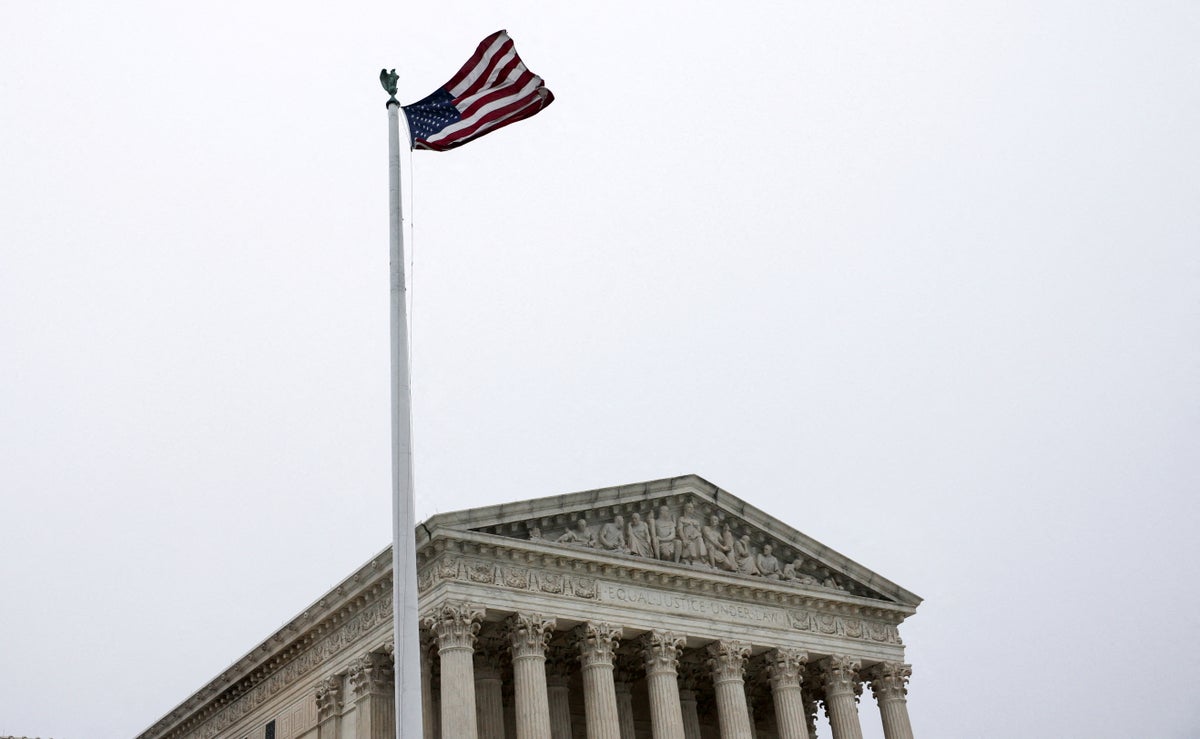
The US Supreme Court has ruled that the state of Maine cannot exclude private Christian schools from a taxpayer-funded school voucher programme that helps students attend private schools.
The 6-3 decision from the high court’s conservative majority in the case of Carson v Makin could have wider implications for impacts to public schools and whether the government is obligated to support religious institutions on the same level as private ones.
In her dissent, Justice Sonia Sotomayor wrote that the Supreme Court “continues to dismantle the wall of separation between church and state that the Framers fought to build.”
“The consequences of the Court’s rapid transformation of the Religion Clauses must not be understated,” she wrote, issuing a warning that the court is undermining core First Amendment protections that prevent the government from imposing religious views.
Justice Sotomayor pointed to a dissent she authored in 2017, when she wrote that she feared the Supreme Court “lead[ing] us … to a place where separation of church and state is a constitutional slogan, not a constitutional commitment.”
“Today, the court leads us to a place where separation of church and state becomes a constitutional violation,” she wrote in her dissent on 21 June. “If a state cannot offer subsidies to its citizens without being required to fund religious exercise, any state that values its historic anti-establishment interests more than this court does will have to curtail the support it offers to its citizens. With growing concern for where this court will lead us next, I respectfully dissent.”
Under Maine’s programme, students in rural areas too small to support a public school system can be eligible for state-funded tuition aid to attend private schools, as long as those schools are not religious-affiliated or “a nonsectarian school in accordance with the First Amendment,” according to the state’s Department of Education.
One of the schools involved in the case – Temple Academy in Waterville – instructs teachers to “integrate biblical principles” in their lessons and for students “to spread the word of Christianity.” Bangor Christian Schools grounds its lessons in a “Christian worldview and Christian philosophy of life.”
Both institutionss “candidly admit that they discriminate against homosexuals, individuals who are transgender and non-Christians,” according to the brief filed by Maine to defend its programme.
In the Supreme Court’s ruling, Chief Justice John Roberts wrote that the programme’s exemption of religious schools amounts to “discrimination against religion.”
The chief justice authored the ruling with Justices Samuel Alito, Amy Coney Barrett, Neil Gorsuch, Brett Kavanaugh and Clarence Thomas supporting the decision. The court’s three liberal justices dissented.
Justice Stephen Breyer wrote that “Maine has promised all children within the state the right to receive a free public education,” extending a promise of a “religiously neutral education required in public school systems.”
But “while purporting to protect against discrimination of one kind”, the ruling from court’s conservative majority “requires Maine to fund what many of its citizens believe to be discrimination of other kinds,” according to Justice Sotomayor.
The case and its ruling are broadly similar to Espinoza v Montana Department of Revenue, in which the court argued that the state violated the First Amendment by prohibiting government aid from supporting religious institutions.
Chief Justice Roberts wrote in that opinion that once a state decides to subsidise private education, “it cannot disqualify some private schools solely because they are religious.”
A statement from the American Civil Liberties Union said the decision in the Maine case “undermines our Constitution’s promise of separation between government and religion.”
The ruling comes as the Supreme Court nears the end of its term, with some of its most high-profile decisions expected by the end of June or early July, including the case of Dobbs v Jackson Women’s Health Organization, which could determine the fate of abortion rights in the US, and Kennedy v Bremerton School District, another First Amendment case that raises questions about government workers’ rights to free exercise of religion against constitutional protections against imposing religious views.







